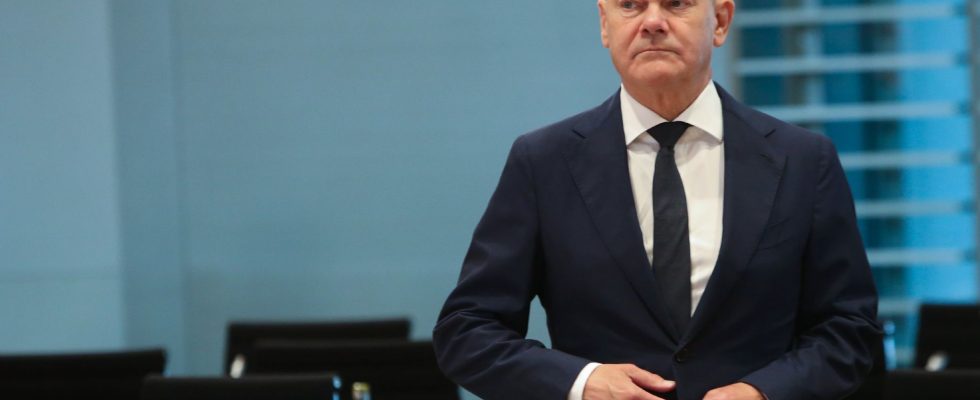The main German leaders have long kept silent, or acquiesced opportunistically. The boards of major car companies, including Volkswagen and Mercedes-Benz, have applauded the “energy and mobility transitions” launched by Angela Merkel. At the same time, they did not denounce the mistakes made, such as the banning of the combustion engine from 2035.
But today many have had enough. Some have even decided to speak out. One of Germany’s best-known business executives, Wolfgang Reitzle (who worked for BMW, Ford and Linde), just did it in the clearest way. “Germany is in decline,” he warns in an article published in the German daily Die Welt.
His critique: Improving productivity has been Germany’s hallmark for a long time, but unit labor costs have been rising for years. “Germany is no longer among the top 10 countries in Europe in terms of GDP per capita. We have dropped out of the list of the 20 most competitive countries in the world.”
Germany is currently governed by a coalition of two left-wing parties, the Social Democratic Party (SPD) and the Greens, as well as the pro-market liberal FDP, which is trying to avoid the worst. However, Reitzle does not place all the responsibility on this government alone. According to him, the decline has its origins above all in the period when Angela Merkel led Germany, from 2005 to 2021: “Sixteen years under the leadership of Chancellor Angela Merkel was too much, even for a country as strong as Germany,” he wrote, adding: “During the Merkel era, there was not a single structural reform that could have made the country more efficient. However, two fundamental decisions will have a lasting impact: the transition energy and the opening of borders to uncontrolled migration.”
“Shameful” state of infrastructure
The leader accuses Germany of having massively developed its social protection system, while not investing in the future. For a country as rich as Germany, the infrastructure is in a “shameful” state. He also criticizes the EU’s policy of constantly imposing new regulations on European companies. As an example, Reitzle cites the large BASF group, which has to deal with 14,000 pages of regulations relating to the chemical industry.
BASF recently announced plans to cut thousands of jobs in Germany and invest billions in China. The company justified its decision by the staggering cost of electricity in Germany, and by the excess of paperwork and bureaucracy. Many other companies have already announced that they will leave Germany to expand their activities in the United States or Asia.
Wolfgang Reitzle criticizes the fact that Germany is moving further and further away from the market economy, pointing out that the share of the public sector now reaches 50% of GDP. “Belief in the state increases, support for the market economy decreases.” Germany already has by far the shortest annual working time in the world, with 1,349 hours (compared to 1,791 hours in the United States and 1,830 hours in Poland). “And we are currently discussing a four-day week with, if possible, two days of working from home for a better work-life balance.”
Sick man from Europe
For Reitzle, the fundamental problem is that policy-making in Germany is completely subordinated to the question of “climate protection”: “No other country in the world has such a reckless climate policy as Germany, which seems believe it can save the planet’s climate virtually single-handedly.” Germany has abandoned nuclear power and, more recently, even shut down fully functioning nuclear power plants at a time of massive energy shortages. “This electricity is replaced by nuclear energy from France and coal energy from Germany, among others… For years to come, we will have the most polluting electricity in Europe after Poland, and we will not make a significant contribution to climate protection.”
The flaw in Germany’s energy and climate policy lies in the maxim: “All electric – only renewable energy.” However, to implement this policy, it would be necessary to more than double the quantity of electricity produced, and to do so quickly. Wind and solar power generation capacities are expected to more than quadruple. Since wind and solar energy are very volatile, we would need huge storage and backup capacities. “However, explains Wolfgang Reitzle, it is neither technically possible nor affordable for a country like Germany. It is simply madness.”
In addition to Angela Merkel, his criticism also targets Economy Minister Robert Habeck of the Greens: “Habeck’s ‘renewables only’ plan is doomed to failure. He and the Greens, as well as a large quasi-religious community of left-wing environmental journalists, are engaged in an ideological journey that can only result in gigantic losses of prosperity in Germany.”
If this “course” continues, Germany will fall even further behind. And then it will become a problem for the whole of Europe. “With the euro, a de facto union of responsibility and transfer has been established, and Germany is ultimately responsible for it. But, if Germany becomes the sick man of Europe, it risks losing the AAA financial rating. The day Germany loses this rating will be D-Day for the Eurosystem”, concludes Wolfgang Reitzle.
* Rainer Zitelmann is a German historian and sociologist. His book In Defense of Capitalism has just been published in English.
